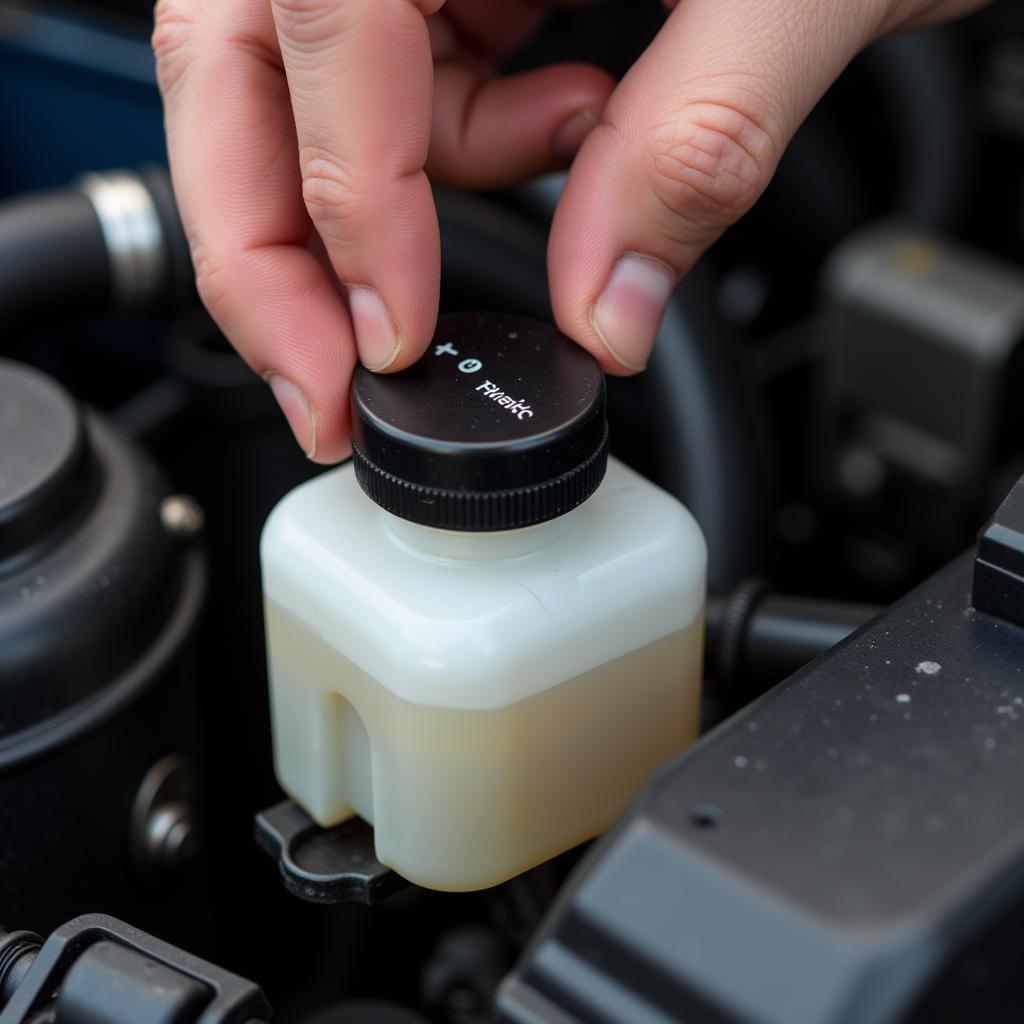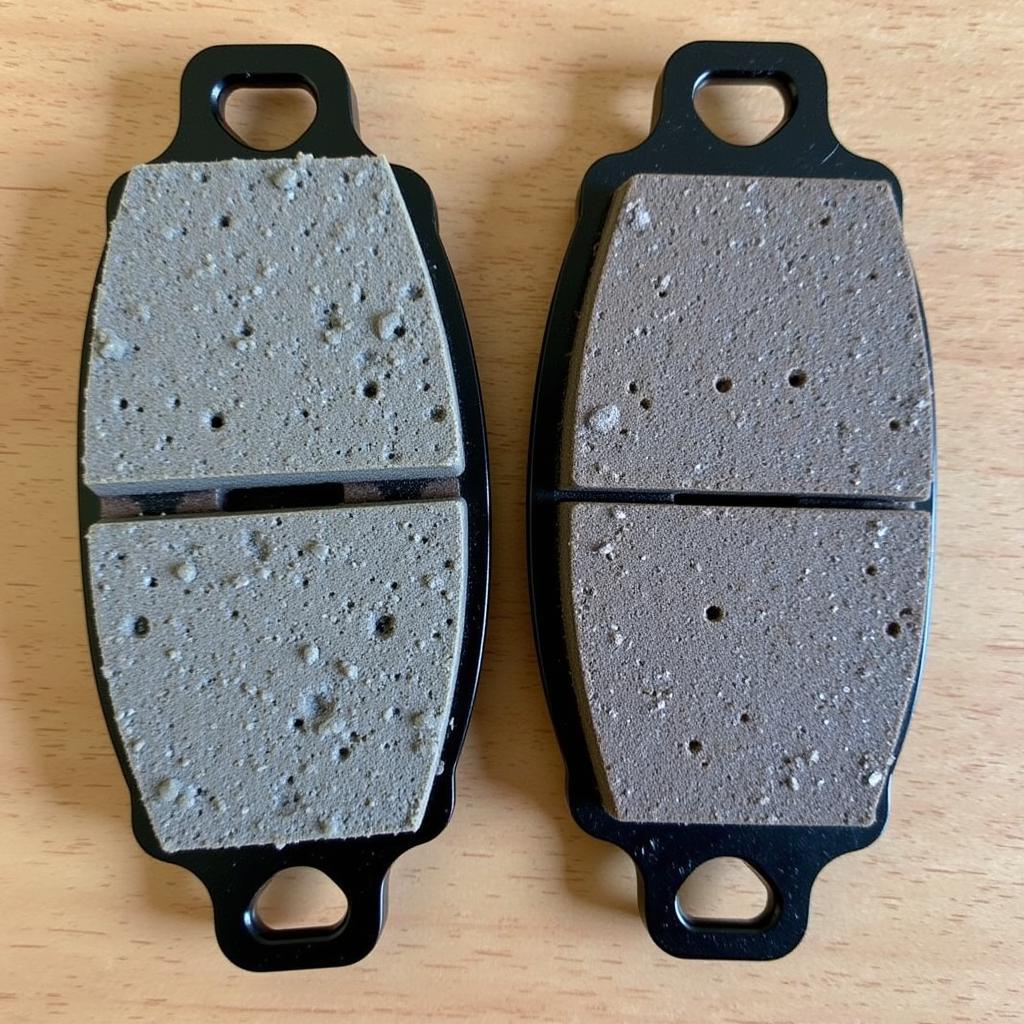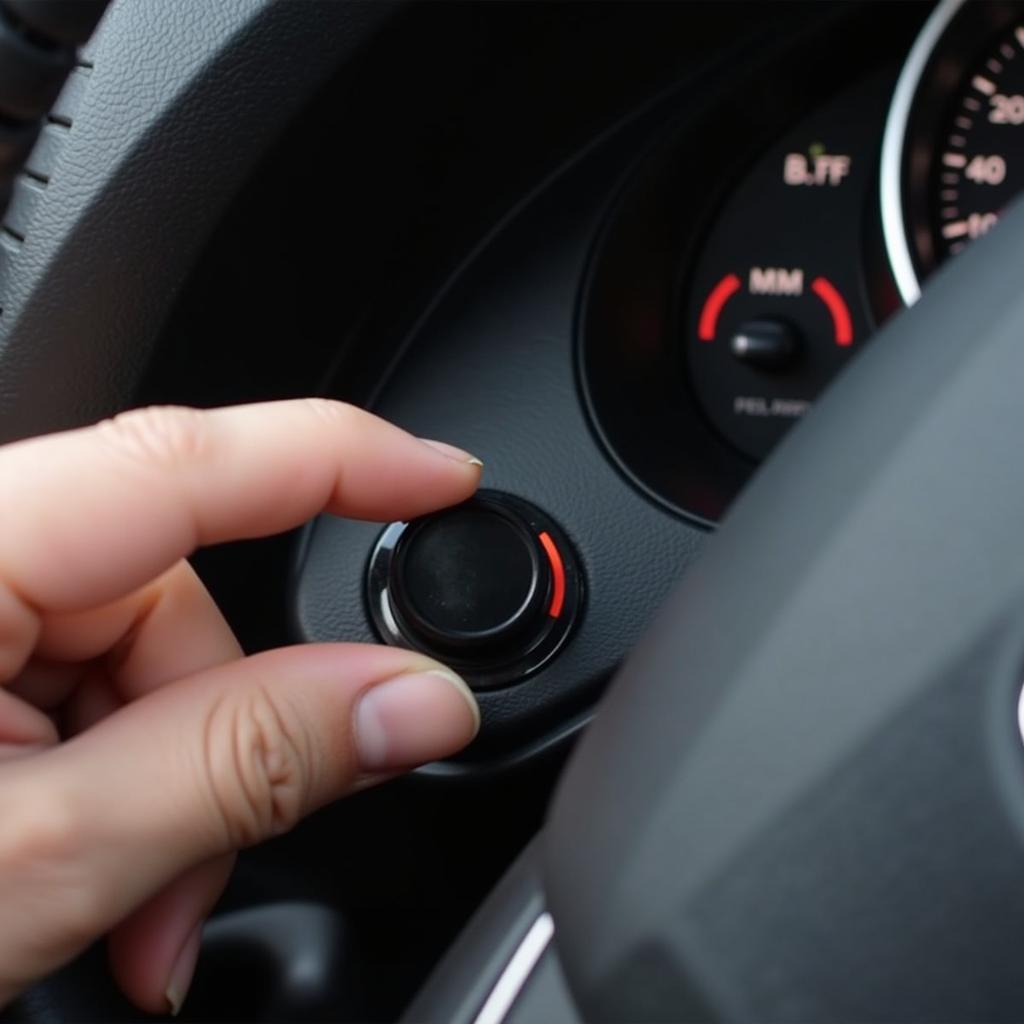A glowing brake warning light on your dashboard is a clear signal that something needs attention. While it can be unsettling to see this light stubbornly refusing to switch off, understanding the common causes and solutions can help you address the issue effectively.
Common Causes of a Persistent Brake Warning Light
There are several reasons why your brake warning light might stay on. Let’s explore some of the most frequent culprits:
-
Low Brake Fluid Level: This is one of the most common reasons for the brake warning light to illuminate. If the brake fluid level in the master cylinder drops too low, it can trigger the warning light.
-
Worn Brake Pads: Brake pads are designed to wear down over time. When they reach a certain level of wear, a sensor embedded within the pad will contact the rotor, completing a circuit and illuminating the warning light.
-
Faulty Brake Light Switch: The brake light switch is responsible for activating your brake lights when you press the brake pedal. A malfunctioning switch can prevent the lights from working correctly and trigger the warning light.
-
Issues with the ABS System: Modern vehicles are equipped with Anti-lock Braking Systems (ABS) for enhanced safety. If a problem arises within the ABS system, such as a faulty sensor or control module, the brake warning light might illuminate.
-
Hydraulic System Leak: A leak anywhere in the brake system’s hydraulic lines or components can lead to a drop in brake fluid pressure and activate the warning light.
 Checking brake fluid level
Checking brake fluid level
Troubleshooting the Brake Warning Light
Before taking your car to a mechanic, you can perform a few simple checks to try and pinpoint the issue:
-
Check Brake Fluid Level: Safely park your vehicle on a level surface and allow the engine to cool. Locate the brake fluid reservoir (refer to your owner’s manual if needed). Carefully open the reservoir cap and check the fluid level. It should be between the minimum and maximum markings.
-
Inspect Brake Pads: If possible, visually inspect your brake pads through the spaces between the wheel spokes. Look for signs of excessive wear, such as thin pads or metal-on-metal contact.
-
Test Brake Lights: Ask someone to observe while you press the brake pedal. Ensure all brake lights (including the high-mounted brake light) are functioning correctly.
 Comparing new and worn brake pads
Comparing new and worn brake pads
When to Seek Professional Help
While the above checks can provide some initial insights, it’s crucial to seek professional assistance if:
- You are not comfortable performing basic checks.
- The brake warning light remains on despite checking fluid levels and brake lights.
- You suspect a brake fluid leak or issues with the ABS system.
- Your brake pedal feels spongy or unresponsive.
Remote Diagnostics and Software Solutions
In today’s technologically advanced automotive landscape, remote diagnostics and software solutions play a pivotal role in addressing brake system issues. Specialized technicians can remotely connect to your vehicle’s onboard computer system to:
-
Retrieve Diagnostic Trouble Codes (DTCs): These codes provide valuable insights into the specific areas of the brake system that might be experiencing faults.
-
Analyze Sensor Data: Real-time data from various sensors within the brake system, such as wheel speed sensors and brake pressure sensors, can be analyzed to identify irregularities.
-
Perform Software Updates and Calibrations: In some cases, software updates or recalibrations might be necessary to address specific brake system issues.
brake warning light on and off
Importance of Timely Brake System Maintenance
Regular brake system maintenance is essential to ensure optimal performance and safety. Adhering to your vehicle manufacturer’s recommended maintenance schedule will help:
-
Prevent Costly Repairs: Addressing minor issues early can prevent them from escalating into major, expensive problems down the line.
-
Extend the Lifespan of Brake Components: Regular inspections and timely replacements of worn parts can significantly extend the lifespan of your brake system components.
-
Ensure Your Safety and Peace of Mind: A well-maintained brake system is paramount for your safety and provides peace of mind on the road.
how do i fix my brake warning light
Conclusion
A brake warning light that won’t turn off should never be ignored. Understanding the common causes, performing basic troubleshooting, and seeking professional help when needed are essential steps in resolving the issue and ensuring your safety on the road.

